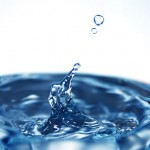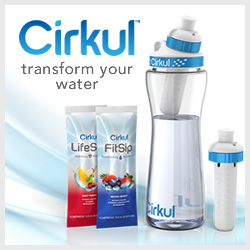 Gone are the days of just drinking water out of the garden hose on that hot summer day. Today in our modern world we have very full busy lives and our water has gotten just as busy. What am I talking about? Polluted water. We need water daily to survive and to be truly healthy we need healthy water. Let’s look at some solutions.
Gone are the days of just drinking water out of the garden hose on that hot summer day. Today in our modern world we have very full busy lives and our water has gotten just as busy. What am I talking about? Polluted water. We need water daily to survive and to be truly healthy we need healthy water. Let’s look at some solutions.
Water Reports
Many large cities publish a yearly report of the quality of the public water. I was looking at ours the other day and one thing jumped out that was unsettling. At the top of each chart was the term, “acceptable limit”. Just take you pick of the dangerous chemical, bacteria, heavy metals, etc… and you will see an amount that they say is ok to leave in the water. Now I don’t know about you but to me poison is poison and I want it all out. Maybe I am just greedy that way, please forgive me.
Water Filters
Like that old saying, “if you want something done right you have to do it yourself.” Face it, you will have to purchase a water filter system or buy water that is filtered. Go down to your local hardware store and you will find many different solutions. Water filtration is nothing new and it is not rocket science. You just have to understand the basics to make a choice that fits your needs.
Carbon & Sediment Filters
Simple carbon filters are where most entry level water filters start. These filters often use granulated activated carbon to remove chlorine, chloramine, endocrine disruptors, pharmaceutical drugs, pesticides, disinfection by-products and they help to improve the taste. Often these filters are combined with a sediment filter, which can be a simple woven screen or all the way up to a complex solid porous block. Used together these systems can remove virus sized particles down to .01 micron, which would include spores, fungi, parasites and bacteria. Ingesting these “bad guys” could lead to minor diarrhea at the least or life threatening at the other end.
Activated carbon filters do not remove heavy metals very well or fluoride. Heavy metals are often neuro-toxins that affect the brain and nervous system. Fluoride is a big issue to our health and you can read more in; Fluoride In Drinking Water = Poison, Is Chlorine In Drinking Water Safe?
These entry level filters cost the least and go by brand names like, Britia and Pur. They can be a simple pitcher that you pour water into the top where the filter is or faucet mounted systems. Your refrigerator filter falls into this group of filters. Filters in this group seem cheap to start with, but they usually only filter a couple hundred gallons before replacing. This level of filters is a good place to start if you don’t have the extra cash for a more substantial system. When figuring your costs look at the yearly costs.
Ceramic Water Filters
These type of water filters often use diatomaceous earth, a tiny fossil substance made up of silicon shells left by trillions of microscopic, one celled algae, called diatoms, placed under pressure to form a “ceramic filter”. Removal of particles down to .01 micron are possible using these filters. This level can be considered bacteriologically safe. Some heavy metals are removed with these type of filters. 90% of chlorine is removed and fluoride is not removed and the flow of these filters is usually slow.
Often these filters are combined with some type of charcoal to remove chlorine, chloramine, endocrine disruptors, pharmaceutical drugs, pesticides, disinfection by-products and improve taste. If combined with an active alumina filter these units will remove fluoride to produce a water that is of very high purity, while maintaining natural mineral content.
These filters do have a much longer life span and can filter hundreds to thousands of gallons of water. When these filters get cloged the outside of the filter with the filtered media is scrubbed away using a rough pad and the filter reinstalled. Cost will be higher initially, but with the longer filter life cost per gallon can be lower. Systems of this type are simple to install and often are gravity fed stand alone units taking up about the space of a coffee maker on your counter.
Reverse Osmosis Filters
If you want to remove everything these are the filters to go with, but there are some issues to pay attention to. These filters use a membrane where the water is forced through under pressure. The membrane allows only the water molecules to pass through it, removing all impurities including minerals. Here is the touchy part in this filter. When water has all the minerals removed it becomes very active… it seeks out the minerals that were removed from it to achieve balance. So in other words it will leach the minerals it needs from your body to find balance ironically and you will pass this balanced water out in your urine.
This issue with reverse osmosis is being addressed in some system by adding a re-mineralizer to balance the water and make it healthy for long term consumption. These systems are very expensive, slow and take up lots of space because they require a storage take for the purified water. A professional plumber would be needed to install this type of system and it would be considered permanent.
Water Distillers
Heat is used to create steam, then it cools, or condenses, the steam, creating purified water. These systems do a good job of killing bacteria and removing impurities, but like the reverse osmosis systems the water is de-mineralized. People often relate this system to rain water when trying to say how pure and safe it is. But rain water is absorbed by the earth and re-mineralized as it passes through the dirt and rock before being used by plants and animals. The USDA even states that people should not drink distilled water for any period of time due to its leeching affect. These units also need some type of power source to heat the water.
Other Systems
I have covered the basic systems that most people will use some form of, but I did want to mention some of the others that maybe combined. UV systems use high frequency light to irradiate water killing bacteria, often these systems are combined with others to insure a clean product. Cost is high and a power source needed.
Water Ionizers filter the water and then ionize it to produce an alkaline water. The idea behind this product is that cancer does not live in an alkaline environment and the water will make the body more alkaline. These systems are very expensive and often require some type of re-mineralization be built in or added to the system.
Advice
I can’t tell you which water system would be best for your requirements. We all have different issues to consider, health, skill level for installation, budget, physical space, etc… I can say you will need to get a water purification system that you feel comfortable with. You may start with a simple one like a Brita or Pur and move up as your experience grows and budget allows. Do figure in operating cost over time, some cheaper systems cost more overtime than units that have a higher purchase cost.
Tomorrow we will be sharing a review of a system that we recently had the option to try out in our home. If you feel this article could help others do share it.
Source:
About.com – How to Remove Fluoride from Drinking Water
Berkey Water Systems
Brita.com
Pur.com




I am interested in your knowledge about Kangen water. There is a lot of conflicting information out there in cyberspace! We want the best water to hydrate and nourish our bodies, especially as my husband has been diagnosed with cancer. We have been drinking Kangen water, but I would like to know your opinion.
Thank you
Janet, do checkout the new post about water. I cover alkaline water in it. Diet is a major factor in working with cancer. Contact us if you want to talk more about this.